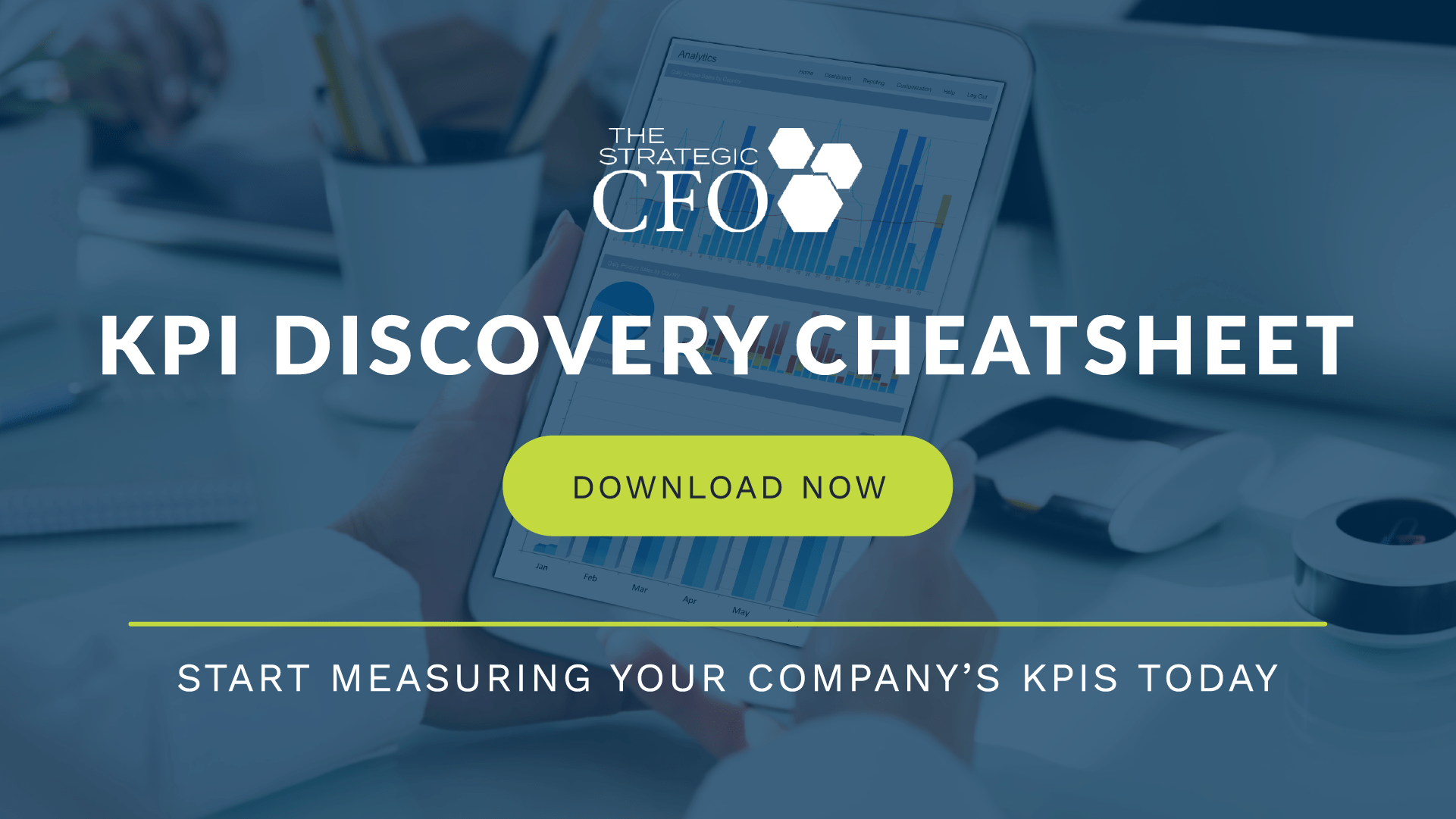
Job costing, cost accounting, manufacturing costs, what does all of this mean? Oftentimes, job costing, cost accounting, and manufacturing costs are used interchangeably. As a manufacturer, it does not matter what you call it. But it is critical that as a manufacturer, you capture all of your conversion costs. Simply put, you are taking raw material and converting it to a finished good that is ready for sale. You need to capture 100% of those cost of converting the raw material. Most small companies start with the most basic bookkeeping, and that’s okay. But there are two huge mistakes manufacturing companies make that you need to avoid.
Eventually, you need to have proper accounting transactions and systems to capture all of those manufacturing costs to have accurate margins. Accurate financial statements and margins will allow you to correctly price your product and will allow you to make adjustments to your business. This is helpful when you have a change in prices of materials or labor, or if your volume throughput changes for whatever reason.
Mistakes Manufacturing Companies Make
In my career, I have seen two recurring mistakes manufacturing companies make that are related to accounting process, procedures and systems.
First, a company may not want to spend the time and money to improve their cost accounting and systems. As a result, this company will struggle forever. The managers of that business will not have accurate financial reports, and they will likely feel the pain when markets turn or are in a high growth situation. Remember, cash gets tight when in either a growth or decline pattern, especially if it’s not managed well.
Second, a company wants to improve the manufacturing cost accounting, but they overdo it. They want a report that tracks every penny and part, and they install a massive expensive system. Many times, they install the wrong system for their company because it was marketed as the best accounting system. This happens when companies do not spend the money to go through a system selection process. They all end up spending much more than the cost of the professional system selection and bust their budget.
Best Practices for Manufacturing Companies
As a manufacturing company, please consider the following as a best practices for your leadership to abide by.
Analysis Paralysis
You DO have to capture 100% of your costs to take raw material and manufacture a finished good. However, this does not mean you need a separate dashboard or KPI for every cost item. If it is not material and the outcome of the cost is not going to change your mind or cause you to make a business decision, then you may reconsider trying to measure it. Remember, everything you want to measure has a cost itself of measuring it. Not capturing 100% of the costs can be devastating to your company. Remember the quote from Benjamin Franklin, “A small leak will sink a great ship.”
[box] Many business owners and financial leaders want to measure everything. But you should limit your key performance indicators to those that will lead to business decisions! Click here to access our KPI Discovery Cheatsheet to identify those indicators that really drive value. [/box]
Margins
When you manufacture a product, you have your obvious direct materials and direct labor – measuring Cost of Goods Sold. This is absolutely crucial in a manufacturing company. But there are other costs that you need to measure. I am referring to your indirect expenses, especially your sales, general and administrative expenses. You also want to measure your gross margin and/or contribution margin and your Earnings, Before, Interest, Tax, Depreciation and Amortization (EBITDA). Consider the implementation of analyzing trends based on a trailing twelve months (“TTM”). This will help you spot trends in your business and financially lead your company. Do not forget your balance sheet. Everything ultimately affects cash and working capital. Without cash and working capital, you will create a financial disaster. Do have KPIs for your balance sheet items that you want to measure.
Systems
Systems are an important part of having a productive and efficient accounting department. It seems that every year there is a new operating system that comes in to the market, and it seems that the developers of these systems want to expand into every market – beyond manufacturing and accounting. With all of these choices and with all of the talented sales people, you need to understand what the choices are for your business. It is worth spending the money to go through a system selection process.
Timing
Timing is everything in manufacturing. Consider the following timing of:
- Throughput
- Delivery of the finished good
- When you modify your standard costs
- How quickly you close you books and generate financial records that are accurate and serve as a tool to help you run your business
- Collections so you have cash to place that next order of raw material
Employee Turnover
I recently quoted in a past blog that employee turnover in the U.S. has an average cost of $65,000 per year per employee lost. The number in a manufacturing environment is actually higher because there are often specialty skills that need to be acquired in manufacturing. So keeping a close watch on employee turnover is crucial in a manufacturing company.
Inventory
For whatever reason, inventory seems to be the “Achilles Heal” in many manufacturing companies. Companies either do not properly manage inventory, they have bad practices, or it just seems that it is never right. Once you establish a good process and reconcile inventory, it should be more of a maintenance routine if your people know that they are doing. Consider the following for inventory:
Be Realistic About Inventory
Be realistic about what is obsolete inventory and good inventory. I know that companies, especially public companies hate to write off inventory. But you are just kicking the can down the road by not dealing with it now.
Clean Up
Get rid of the junkyard! So many companies I have seen have a junkyard behind the manufacturing facility. It has been there for years and all it does is accumulate rats, snakes and rust. Liquidate it and get a scrap dealer to take it off of your hands. You can use that cash for door prizes at the next company party!
Stay Focused
Stick to your business and stay focused. Especially in closely held companies, some business owners waste money on the craziest things. I have saw hundreds of old mopeds (remember, these are bicycles with a weed eater motor) in the back of a large industrial manufacturer. The owner got a “great deal” on them, so he purchased them to resell. The problem is that the initial transaction happened 7 years ago. I also saw a massive specialty machine that cuts steel in the back of a pipe manufacturer because the owner thought he could open a new line of business cutting huge pieces of steel. This machine was two stories tall and weighed thousands of tons. Still to this day, I have no idea how they ever moved it. In addition, the owner never got the new line of business started because there is not a building big enough on his property. The machine has not run in 10 years.
Physical Count
Establish strict physical counts quarterly or at least annually. Have the right team of people conduct the physical count.
Adjustments
Make adjustments to your inventory, and get it over with. Write it up or down in your accounting records.
Segregate Inventory
Segregate your inventory. There is something beautiful about walking into a manufacturing facility and seeing exactly where the raw material, work in process, and finished goods are. Keep obsolete inventory in a separate area that is clearly marked off. Tag and count everything!
Hire a Good Cost Accountant
Cost accounting is a specialty area within the accounting profession. Unfortunately, not every accountant or controller knows cost accounting. Yes, hopefully most accredited accounting programs at universities cover cost accounting, but that does not mean the person you are hiring is a cost accountant. Someone with good manufacturing experience and understands cost accounting is worth his weight in gold. This person will add value to your bottom line.
In the meantime, start measuring and tracking your KPIs. Download our free KPI Discovery Cheatsheet and start tracking your KPIs today!
Access your Flash Report Execution Plan in SCFO Lab. The step-by-step plan to maximize profits.
Click here to learn more about SCFO Labs[/box]












